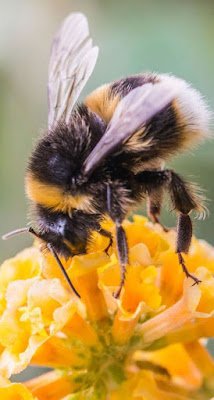The Importance of Bees in Pollination and Agriculture
The Role of Bees in Agriculture and Pollination
Bees are necessary for the pollination of many different kinds of plants, including many of the foods used to feed people and animals. Bees carry pollen from a flower's male to female reproductive organs during the process of pollination, which enables the plant to generate seeds and fruit. Many of our favourite fruits, vegetables, and nuts couldn't be produced if bees and other pollinators weren't around.
Bees' Function in Pollination
Due to their hairy bodies, which easily catch and distribute pollen, and their propensity to visit a variety of flowers, bees are among the most successful pollinators. A bee gathers up pollen on its body when it gets nectar from a blossom. Some of the pollen rubs off as it visits another bloom, fertilising the plant. Fruits and seeds, which are essential for the reproduction of the plant, can be produced by plants by this procedure.
There are many different species of bees, and each one is best adapted to pollinating specific kinds of plants due to its own distinctive traits. For instance, bumblebees are efficient pollinators of plants with deep corollas because they have a long tongue that enables them to get nectar deep inside flowers (the petals of a flower). On the other hand, honeybees are specialised pollinators that are known to visit a wide range of plants. They are recognised as the agricultural industry's most effective pollinator.
Bees Are Important to Agriculture
Bees, other insects, birds, and bats all play an important role in agriculture by pollinating plants. Fruits, vegetables, nuts, and seeds are just a few of the crops that require pollination in order to be produced for human and animal consumption. Among the most significant crops pollinated by bees are:
Almonds: The pollination services of around 1.6 million bee colonies are required by the California almond crop alone.
Apples: Bees are in charge of pollinating apple orchards to a degree of roughly 90%.
Blueberries, raspberries, and blackberries are just a few of the berries that depend on bee pollination.
Melons and cucumbers are two crops that need a lot of bees to be successfully pollinated.
Sunflowers are a significant source of oil and seeds, and they are mostly pollinated by bees.
These and many other crops would not be as productive without bees and other pollinators. Fruits, vegetables, and nuts would cost more as a result, and food shortages would develop.
In conclusion, bees are essential to agriculture and pollination. They assist in ensuring that many of the items we depend on every day are always available. Concern has been raised about the fall in bee populations brought on by things like disease, pesticide use, and habitat degradation. In order to continue enjoying the abundance of nature, it is crucial that we take action to conserve bees and other pollinators.







0 Comments